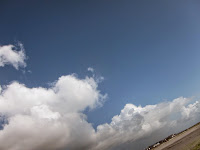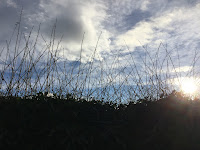A book published recently is:
Candice Benjes-Small, Wittig, C. & Oberlies, M. (2021). Teaching About Fake News: Lesson Plans for Different Disciplines and Audiences. ACRL. 978-0-8389-3890-4. US $88.00; ALA Member $79.20. https://www.alastore.ala.org/content/teaching-about-fake-news-lesson-plans-different-disciplines-and-audiences
The 23 chapters include: Senior Citizens, Digital Citizens: Improving Information Consumption in Older Adults by Nicole Thomas; It’s a Conspiracy! How, Why, and Where Conspiracy Theories Endure and Thrive by Sarah E. Morris; Evaluating Data Visualizations for Misinformation & Disinformation by Nicole Helregel; Bad Influence: Disinformation and Ethical Considerations of Influencer Marketing Campaigns on Social Media Platforms by Laureen P. Cantwell and Mia Wells; Battling Fake Science News: The Power of Framing by Ekaterina Bogomoletc and Nicholas Eng; Establishing the Fake News-Pseudoscience Connection in a Workshop for Graduate Students by Brian Quinn; Alternative Facts and Actual Profits: Teaching Fake News in a Business Context by Allison F. Gallaspy; Countering Fake News with Collaborative Learning: Engaging Writing Center Tutors in Information Literacy Instruction by Lori Jacobson.
Curating information literacy stories from around the world since 2005 - - - Stories identified, chosen and written by humans!
Pages
Monday, January 31, 2022
Book: Teaching About Fake News: Lesson Plans for Different Disciplines and Audiences
Saturday, January 29, 2022
MOOC: Disinformation step by step / La désinformation pas à pas / Desinfomación paso a paso
This MOOC (free online course), produced by the French project (with EU funding) Youverify, is running for the second time, starting 14 February 2022, accessible in 3 languages: French, Désinformation pas à pas https://youverify.eu/fr/mooc; English, Disinformation step by step https://youverify.eu/en/mooc; Spanish, Desinfomación paso a paso https://youverify.eu/es/mooc.
Use the above links to register.
There are new features for this 2nd iteration of the MOOC:
- two training pathways - "PATH 1: understanding visual disinformation and exploring its challenges
and PATH 2: setting up concrete Media and Information Literacy projects to fight this phenomenon"
- new games "Bot Busters" & "Permit to think"
plus updated and new content.
Friday, January 28, 2022
Carbon Literacy
Another literacy! Carbon literacy is defined on the Carbon Literacy Project website as “An awareness of the carbon dioxide costs and impacts of everyday activities, and the ability and motivation to reduce emissions, on an individual, community and organisational basis.” The UK project creates Carbon Literacy Toolkits with training materials for specific sectors (they are just releasing the toolkit for museums, which is why I picked up the news): you only get access to the toolkit if you are in that sector. There are already toolkits for the University sector and Local Authorities (presumably including public libraries) https://carbonliteracy.com/toolkits/ "Learners who successfully complete a day’s worth of approved Carbon Literacy learning are certified as Carbon Literate" so perhaps it isn't as challenging as information literacy...
Photo by Sheila Webber: Xmas trees out for collection, January 2022
Thursday, January 27, 2022
Webinar: Enhancing Teaching and Learning Using Virtual and Immersive Technologies
A free webinar from University College Cork, Ireland, on 6 February 2022 at 14:00-17:00 GMT is Enhancing Teaching and Learning Using Virtual and Immersive Technologies. "This online seminar from UCC Library will explore the ways in which VR has been used as an innovative instructional application and provide insights into the “when,” “why” and “how” of using VR to maximize learning impact and support student engagement and success. Presenters come from a range of backgrounds and will speak on their experiences in VR, whether that be sharing knowledge on embedding VR in a course or facilitating access through support services like libraries. " There are no further details at the moment, so I'm not sure how they are defining VR (whether they are thinking 3D-goggles-only or including virtual worlds). Registration at https://www.eventbrite.ie/e/enhancing-teaching-and-learning-using-virtual-and-immersive-technologies-registration-228898299977
Photo by Sheila Webber, taken in the virtual world Second Life, Cat shrine, January 2022Wednesday, January 26, 2022
Presentation: Empowering Faculty to Empower Learners via Information Literacy
"Intentionally designing learning experiences that integrate accessible Information Literacy (IL) skills for all students is a crucial step towards educational justice, a paramount responsibility in the democratic mission of our institutions. With this goal, the University of Rhode Island’s Office for the Advancement of Teaching and Learning has partnered with instruction librarians since 2018 in developing and facilitating a High Impact Teaching Seminar for faculty. Participants will learn about the seminar’s theoretical framework, impact and structure, engage in selected activities, and reflect on possible applications at their own institutions."
There is an informative slide presentation, and worksheets from the workshop, at https://digitalcommons.uri.edu/lib_ps_presentations/12/
Photo by Sheila Webber: Chapelgarth, December 2021
Tuesday, January 25, 2022
Game-based learning for IL teaching
Monday, January 24, 2022
One day webinar: Publication to press: building trust in research communication
A one day webinar on Publication to press: building trust in research communication takes place on 9 February 2022, at 10-15.00 UK time. "How research is communicated varies from an international scale down to local level, as also reflected in the quality of coverage from in-depth news features to poorly referenced, click-bait churnalism." There is an interesting programme of speakers (researchers, people from different parts of the media etc.) Cost £60.00 + £ 12.00 VAT UKSG Members, £72+VAT non members https://www.uksg.org/event/publication-press21
Photo by Sheila Webber@: sleeping llama, Chapelgarth, December 2021Sunday, January 23, 2022
Ontario Library Association Conference
An online conference covering an interesting range of topics is the Ontario Library Association Conference, 1-5 February 2022. The conference covers different types of library, and does have some sessions related to information literacy including Come Together: Gathering 14 Academic Libraries to Collaboratively Build a Series of Open-licensed Information Literacy Modules for Health Sciences Students Across Ontario; and Algorithmic Literacy and the Role for Libraries and Sharing Is Caring: Building an Online Repository of Teaching & Learning Materials.
Many others looked intriguing e.g. “It’s a friggin' struggle to be honest:” Early Results from a Study of Librarian Workload During COVID-19 and Homeschoolers in the Library and A Year with Gnomes: Creating Joy and Sustaining Community Connection with One Quirky Craft Programme and A gathering of voices. A priced conference (n.b. there is a reduced, Canadian $50, fee for students/underemployed).
Information at https://www.eventscribe.net/2022/OLA/
Photo by Sheila Webber: Apples at farmers market, January 2022
Friday, January 21, 2022
Call for proposals: The Innovative Library Classroom (TILC) 2022
Holly A. Smith, archivist at Spelman College, is their keynote speaker. Proposals are invited for 3 session types: posters; 50-minute presentations; 7- minute lightning talks. More info at https://theinnovativelibraryclassroom.weebly.com/Photo by Sheila Webber: Chapelgarth, December 2021
Thursday, January 20, 2022
First call: Critical Approaches to Libraries Conference #CALC2022
The deadline for the first call for proposals is 13 February 2022. There will be a 2nd call in February. The proposal form is here https://docs.google.com/forms/d/e/1FAIpQLScvTbB1-DrouZW9T9w3-NEx2HMRdA3jG7iDOSzu5zer-k0hNA/viewform. There is more information on their Call for Papers online guide.
Photo by Sheila Webber: skeleton birch branches, December 2021
Wednesday, January 19, 2022
New articles: Media education; Multiliteracy; Disinformation; Teachers' digital and media and information literacy
The new issue of the open access journal Comunicar (vol 30 no. 70, 2022) has a focus on New challenges for teachers in the context of digital learning.
Articles are in English and Spanish - if you want to change the language, click the flag on the top right of the screen (e.g. a Union Jack for English).
Articles include:
- Disinformation and multiliteracy: A systematic review of the literature
Jesús Valverde-Berrocoso, Cáceres (Spain), Alberto González-Fernández,
Cáceres (Spain) & Jesús Acevedo-Borrega, Cáceres (Spain).
https://doi.org/10.3916/C70-2022-08
- Critical media literacy to improve students' competencies
Walter-Antonio Mesquita-Romero, Sibundoy (Colombia), Carmen
Fernández-Morante, Santiago de Compostela (Spain) & Beatriz
Cebreiro-López, Santiago de Compostela (Spain).
https://doi.org/10.3916/C70-2022-04
- Teachers' perspectives for a critical agenda in media education post COVID-19. A comparative study in Latin America
Julio-César Mateus, Lima (Peru), Pablo Andrada, La Serena (Chile), Catalina González-Cabrera, Cuenca (Ecuador), Cecilia Ugalde, Cuenca (Ecuador) & Sebastián Novomisky, La Plata (Argentina).
https://doi.org/10.3916/C70-2022-01
- ICT and Media competencies of teachers. Convergence towards an integrated MIL-ICT model
Alfonso Gutiérrez-Martín, Segovia (Spain), Ruth Pinedo-González, Segovia (Spain) & Cristina Gil-Puente, Segovia (Spain).
https://doi.org/10.3916/C70-2022-02
The whole issue is at https://www.revistacomunicar.com/index.php?contenido=revista&numero=70
Photo by Sheila Webber: Christmas trees out for collection no. 3, January 2022
Tuesday, January 18, 2022
WHO EPI-WIN videos on fighting #infodemics and #misinformation
If you are interested in health and fighting misinformation, you will be interested in the Youtube channel of the World Health Organization EPI-WIN (Information Network for Epidemics) which includes, for example:
- Using local songs and storytelling to engage remote communities with health messages (November 24 2021) https://youtu.be/w1tqGETuSQ8
- Numerous videos from the 3rd WHO infodemic manager training (November/December 2021) including:
Debunking Misinformation with Audio Dramas on WhatsApp;
Tackling the Covid-19 Infodemic in the Caribbean;
Helping Canadians to Vaccinate with Confidence .
The channel is at https://www.youtube.com/channel/UC-t0AL4GoNJYJOOtt2UhvMg/videos
Photo by Sheila Webber: snow, November 2021
Monday, January 17, 2022
Webinars: LIS Pedagogy chat
- January 28 Critical Approaches to Youth Services - Moderators: Amy Pattee, Simmons University, & Lucia Cedeira Serantes, Western University
- February 18 Disability and Accessibility - Moderator: Heather Hill, Western University
- March 11 Critical Cataloging - Moderator: Emily Drabinski, City University of New York
- April 29 Critiquing Course Evaluations - Moderator: Toni Samek, University of Alberta
- May 20 Preparing Students for Community Engagement - Moderator: Mega Subramaniam, University of Maryland
Photo by Sheila Webber: bedroom, Chapelgarth, December 2021
Sunday, January 16, 2022
Combatting Covid-19 misinformation
Photo by Sheila Webber: Christmas trees out for collection no. 2, January 2022
Friday, January 14, 2022
Challenging ageism: A guide to talking about ageing and older age #nomorewrinklyhands
A useful guide for avoiding ageism when writing, using images etc. was published by the Centre for Ageing Better a month ago:
Centre for Ageing Better. (2021). Challenging ageism: A guide to talking about ageing and older age. The press release is here and this is the guide https://ageing-better.org.uk/sites/default/files/2022-01/Challenging-ageism-guide-talking-ageing-older-age.pdf
The hashtag in my title refers to the lazy use of "folded wrinkled hands" images to accompany stories about older people (which is mentioned as a "do not do" in the guide). At the end of the guide it has some actions (including challenging 'internalised ageism such as describing yourself as “past it” or “having a senior moment”') and they link to their useful image databank (which I have drawn on here)
Thursday, January 13, 2022
Podcast: Leaders & Legends of Online Learning
An education podcast that's been going for a while is Leaders & Legends of Online Learning, in which Mark Nichols interviews people who have expertise in online learning. The latest podcast (at time of writing) is with Professor Phillip Dawson and a couple of earlier ones I would pick out are Professor Mpine Makoe and Dr George Veletsianos. The podcast pages give links/readings for each interviewee.
Go to https://onlinelearninglegends.com/
Wednesday, January 12, 2022
Information Literacy & Library Research
The Sherratt Library at Southern Utah University, USA has just updated its LibGuide on Information Literacy & Library Research which has tabs on: Introduction to Information Literacy (includes "Joining the scholarly conversation"); Planning and Research Questions; Searching; Finding & Evaluating; Synthesizing; Reflecting; Creating and sharing (includes "Information has value"). Although this is obviously designed for learners at that university, you can see it as a useful example and source of ideas.
Go to https://library.suu.edu/LibraryResearch/contents
Tuesday, January 11, 2022
Nominations for the Information Literacy Award
More information at https://www.lilacconference.com/awards/information-literacy-award
Monday, January 10, 2022
Course: Scaffolding Information Literacy
An online course from Andrea Baer Scaffolding Information Literacy
runs February 7 – March 2, 2022, price: US $200
"In this 4-week course participants will learn about various scaffolding techniques, reflect on their own related teaching experiences and approaches, and apply scaffolding to developing or revising an instruction plan of their choice.
Course Structure
Week 1: Foundations in Scaffolding: Theory, Principles, & Techniques
Week 2: Instructional Contexts: Identifying Learning Outcomes & Anticipating Stumbling Blocks
Week 3: Creating Learning Experiences & Learning Supports
Week 4: Self-Regulated Learning, Flexible Learning, and the Iterative Nature of Scaffolding
Learning Outcomes."
More info at https://inquiringteachers.com/courses/scaffolding-information-literacy/
Photo by Sheila Webber: wreath at no. 10, December 2021 (the last of this series)
Sunday, January 09, 2022
Call for proposals: 7th International Conference on Communication & Media Studies
There is a call for proposals for the 7th International Conference on Communication & Media Studies, NIU Galway, Galway, Ireland, which runs 25-26 August 2022.
The focus is: Democratic Disorder: Disinformation, the Media and Crisis in a Time of Change.
It will be a blended conference (online and physical).
"The Communication & Media Studies Research Network offers an interdisciplinary forum for the discussion of the role of the media and communications in society. We seek to build an epistemic community where we can make linkages across disciplinary, geographic, and cultural boundaries.
We invite proposals addressing one of the following themes.
Theme 1: Media Cultures
Theme 2: Media Theory
Theme 3: Media Technologies and Processes
Theme 4: Media Business
Theme 5: Media Literacies." (I did publish this call several months ago, it's still open)
More info at https://oncommunicationmedia.com/2022-conference/format?
Friday, January 07, 2022
Registration open for #LILAC22
Bookings are open for LILAC 2022 (the UK's information literacy conference), currently planned as a physical conference in Manchester, UK, 11-13 April 2022. To register a place, you need first to register as a member of the website, or login to your existing account. Costs are (all include VAT):
- CILIP Individual Member Rate: Full Conference (inc. conference dinner etc.) £395
- Speaker & Early Bird Rate: Full conference as above: book by 11 February 2022) £415
- Non Member Rate: Full Conference (as above) £46
-CILIP Individual Member Rate: Day Delegate £185
- Speaker & Early Bird Rate (book by 11February 2022): Day Delegate - £195
- Non Member Rate: Day Delegate - £215
- Networking Evening - £40
N.B. If you paid for the 2020 conference and agreed to defer the conference fee, this should be applied to the 2022 conference (though I don't think they have sent out notices about that yet - at least I haven't had one) so don't pay twice!
Go to: https://www.lilacconference.com/lilac-2022/book-your-place
Thursday, January 06, 2022
Webinar: Realist Reviews and Syntheses: What are they and where do I start?
"Realist reviews (also known as realist syntheses) have witnessed a dramatic and sustained rise in popularity since first being advanced in 2004. Methods for systematic reviews of effectiveness hold limited capacity to gather and analyse evidence on why and under what circumstances interventions are effective. Realist reviews address this challenge by presenting evidence from diverse sources, selected according to relevance and rigour, to explore how a complex intervention works, for whom and under what circumstances."
The event is online via MS Teams and booking is required https://www.lancaster.ac.uk/library/events/realist-reviews-and-syntheses-what-are-they-and-where-do-i-start
Photo by Sheila Webber: grey day, bare twigs, December 2021
Wednesday, January 05, 2022
New articles: Library UX; Objects; Critical Thinking; Academic freedom
The latest issue (vol 83 no. 1) of open access journal College & Research Libraries contains:
- Fostering Critical Thinking in First-Year Students through Information Literacy Instruction
by Mandi Goodsett, Hanna Schmillen ("Through a series of in-depth
interviews, the researchers sought to understand how academic librarians
who primarily instruct first-year college students conceive of, teach,
and assess critical thinking skills in relation to information
literacy.")
- Academic Freedom and (Anti) Social Media? by Wendi Arant Kaspar
- Toward a Critical Turn in Library UX by Maura Seale, Alison Hicks, Karen P. Nicholson ("We contend that UX would benefit from a deeper engagement with user-centered theories emerging from Library and Information Science (LIS) and critical and feminist perspectives on practice, embodiment, and power or risk perpetuating oppressive, hegemonic ideas about the academic library as a white space and its users as able-bodied.")
- Standing Out or Blending In: Academic Libraries in the Crowded Informal Learning Space Ecosystem by Erica Lynn DeFrain, Jennifer Thoegersen, Miyoung Hong
("Using mixed methods, this study examines the relationship between students’ use, satisfaction, and productivity needs at five discrete locations at a large public university.")
- Why Objects Matter in Higher Education by Joanna Cobley ("This article provides insight into what happened when students engaged with authentic historical artifacts for the purposes of learning for the first time.")
Go to https://crl.acrl.org/index.php/crl/issue/view/1611/showToc
Tuesday, January 04, 2022
New book: Research, practice and innovation in deaf multiliteracies
A new open access book:
Webster, J. & Zeshan, U. (Eds.) (2021). Read, write, easy: Research, practice and innovation in deaf multiliteracies. Ishara Press. https://library.oapen.org/handle/20.500.12657/51600 "This book is the first of two volumes on deaf multiliteracies based on research with deaf children and adults in India, Uganda and Ghana. Multiliteracies include not only reading and writing but also skills in sign language, drawing, acting, digitally mediated communication, and other modes. The book covers a variety of themes including the assessment of learners' progress, pedagogical issues as seen from teachers' perspectives, and issues related to curricula. Authors discuss, for instance, the use of multimedia portfolios for tracking the learning of deaf primary school children, the training needs of deaf teachers, and a collaborative approach to curriculum development."
The book is based on findings from a project, and the first chapter introduces the project (Peer to Peer Deaf Multi-literacies) and also explains the use of "multiliteracies", namely: "skills in sign languages, written English, drawing and other forms of visual representation, editing of multimodal productions, and forms of technology-mediated communication that combine different modalities." (p.10)
Chapters include, for example: The storymakers mini-project: Encouraging children’s multimodal writing by Julia Gillen and Uta Papen (there is a video explaining the storymaker process here https://youtu.be/zkEBL8GuPTc
Monday, January 03, 2022
New Journal: Open Scholarship of Teaching and Learning #SoTL
A new journal is Open Scholarship of Teaching and Learning. "While there is no disciplinary focus of the journal, we work with section editors who are teaching in all areas of higher education, and discipline-specific or themed special editions are welcome.
oSoTL submissions could include ...
Reflective practice;
Course evaluation;
Learning, teaching or assessment case study of practice;
Debates around SoTL"
It has open peer review. Volume 1 issue 1 includes an interesting mix of articles:
- Simone Eringfeld
- Data music album Please Hold: A sonic account of studying and teaching at the university during Covid-19 - the Youtube channel with her music tracks presenting her research findings is at https://www.youtube.com/channel/UC3L807dCTy9jlbOqlS1Tamg
- Phil McAleer, Helena M. Paterson
- Improving pedagogy through Registered Reports
- Chrissi Nerantzi
- Gems, buds and slippers or what a series of visualisation tells us about the Learning and Teaching in Higher Education tweetchat (#LTHEchat) - see here for more about #LTHE
- Dawne Irving-Bell
- Dangerous Ideas: Dare to Share
- Nathalie Tasler - Living by the proverb: Developing as a creative teacher in higher education
- Mireilla Bikanga Ada - Master's students' perceptions of final year project supervision : On-campus vs online
- Paula S. Karlsson
- Essay about finding scholarship
- Alice S. N. Kim
- Teaching and Learning Research (TLR) In Action - the TLR website is here
For the contents page, go to https://osotl.org/?journal=osotl&page=issue&op=view&path%5B%5D=1
Photo by Sheila Webber: ho ho ho, December 2021Saturday, January 01, 2022
A happy new year - and celebrating connections @ischoolpam @valibrarian
I hope 2022 brings you health and joy, and lots of information literacy! At the start of the new year I want to celebrate some people I've worked with closely on information literacy in 2021.
- Firstly, Bill Johnston. Earlier in the year we co-presented a talk on Older People in the Post-Truth Era: Countering Ageism by Developing Age Friendly Media and Information Literate Cities (#AFMIL) for the ECIL 2021 conference, which is recorded here https://youtu.be/w6Tsj-bLUDE
His latest project is a book that was just published, All of Our Futures, on Scottish Policy for older people (including the importance of information iteracy in their lives). For some reason the page is inaccessible at the moment (I will do a proper blog post when it returns), but this is the blog post introducing it, from his co-author, Craig Dalzell of Common Weal. https://commonweal.scot/ageing-scotland/
- Secondly, my iSchool colleague, Dr Pamela McKinney. One of the external things we did together this year was a virtual workshop on Theory of Change to evaluate information literacy initiatives for the ECIL 2021 conference, and this is the introductory video at this link
One of Pam's recent publications is: Shire, W. & McKinney, P. (2021). Web 2.0 tools and information literacy instruction in UK university libraries. Journal of Information literacy, 15(2). https://ojs.lboro.ac.uk/JIL/article/view/PRA-V15-I2-5 (open access)
- Finally, in the 3D world, Second Life, I have worked with and presented with Dr Valerie Hill. At the AvaCon Open Simulator conference in December 2021 (this is a conference for educators in virtual worlds (VWs) Val and I presented (within a VW) on Digital Citizenship for Cyborgs and Avatars. This is the recording (our presentation starts at 2 hours 34 minutes) https://youtu.be/8tpYATAAfjs?t=9243. Also, this is a recent article by Val:
Hill, V., & Mackey, T. (2021). Embracing metaliteracy: Metamodern libraries and virtual learning communities. College & Research Libraries News, 82(5), 219. https://doi.org/10.5860/crln.82.5.219
Picture taken by me in the 3D virtual world, Second Life.

























